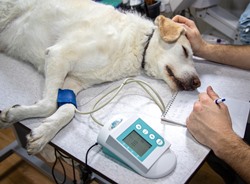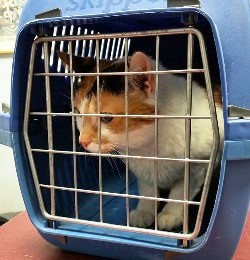Veterinary Technician College
How to Find the Best One Near San Jose California
 Realizing your lifelong aspiration of working with and caring for animals by enrolling in a vet tech school near San Jose CA may initially feel like a challenging undertaking. After all, you need to search for and enroll in a school that will furnish the proper training to ensure that you can succeed as a vet tech. But just how do you tackle reviewing and contrasting programs so that you can make the best selection? When looking for vet tech schools, many potential students start by zeroing in on those that are closest to their homes. When they have found some local colleges, they determine which ones have the lowest tuition and hone in on those. Although location and expense are significant considerations when evaluating vet tech programs, they are by no means the only significant ones when making your assessments. Qualifiers such as internship programs and accreditation should be looked into as well. The point is that there are questions you ought to be asking the veterinary technician programs you are considering before you make a final choice. We have presented several within this article to help get you started, but before we review them we'll talk about the different roles of veterinary technicians and the training options offered.
Realizing your lifelong aspiration of working with and caring for animals by enrolling in a vet tech school near San Jose CA may initially feel like a challenging undertaking. After all, you need to search for and enroll in a school that will furnish the proper training to ensure that you can succeed as a vet tech. But just how do you tackle reviewing and contrasting programs so that you can make the best selection? When looking for vet tech schools, many potential students start by zeroing in on those that are closest to their homes. When they have found some local colleges, they determine which ones have the lowest tuition and hone in on those. Although location and expense are significant considerations when evaluating vet tech programs, they are by no means the only significant ones when making your assessments. Qualifiers such as internship programs and accreditation should be looked into as well. The point is that there are questions you ought to be asking the veterinary technician programs you are considering before you make a final choice. We have presented several within this article to help get you started, but before we review them we'll talk about the different roles of veterinary technicians and the training options offered.
IT TAKES JUST A FEW MINUTES TO START YOUR VET TECH CAREER BELOW
Vet Tech Training Options

One of the initial decisions that you will need to make is whether you plan to train as a vet assistant, technician or technologist. Part of your decision might be based on the amount of time and money that you have to devote to your training, but the principal determiner will undoubtedly be which specialization appeals to you the most. What technicians and assistants have in common is that they both work under the direct direction of a licensed and practicing veterinarian. And although there are many functions that they can perform within the San Jose CA veterinary clinic or hospital, they can't prescribe medicines, diagnose health issues, or carry out surgeries. In those areas they may only provide assistance to a licensed veterinarian. There are technicians and technologists that work outside of the standard vet practice, such as for zoos, animal shelters or police departments. Let's take a look at the responsibilities and education prerequisites for each specialization.
- Vet Assistants in the majority of instances will have gone through a formal training program, either as an apprentice or intern in a vet clinic or hospital, or by graduating from a certificate program at a vocational school or community college. As the name implies, their job function is to assist the veterinarians and vet techs in the completion of their duties. Generally they are not involved with more complex activities, for example assisting with surgical procedures. A few of their typical functions may include working at the front desk, preparing and cleaning exam rooms and equipment, or handling animals during examinations.
- Vet Technicians receive more advanced training compared to assistants and usually acquire a two year Associate Degree, preferably from an American Veterinary Medical Association (AVMA) accredited program. They are in a fashion the veterinary counterparts of medical nurses, since their basic job duty is to assist vets with diagnosing and treating animal patients. Where they vary from vet assistants is that they are involved in more complicated duties, for example assisting with surgeries or providing medication. All states currently mandate that veterinary techs pass a credentialing examination for either licensing, registration or certification.
- Vet Technologists are similar to veterinary technicians and basically carry out the same job functions. They are mandated to attain a Bachelor's Degree in veterinary technology, which normally takes four years to complete. Therefore the main difference between a vet technician and a technologist is the technologist's more advanced level of education. But with an advanced degree comes more career options, higher salaries and potential management positions. They are also required to pass a credentialing exam for either certification, registration or licensing.
Veterinary technicians and technologists can specialize in areas such as anesthesia, internal medicine or urgent care. Many may acquire certification from the American Association for Laboratory Animal Science (AALAS) to work in San Jose CA laboratories or research facilities as well.
Things to Ask Veterinary Technician Programs
 At this point you should have decided on which veterinarian degree that you would like to earn, and if you prefer to study online or attend a school on campus. Since there are a large number of veterinary community colleges, technical and vocational schools in the San Jose CA area and across the Country, you need to ask some qualifying questions to help fine tune your list of alternatives. As we mentioned in our opening, many prospective students start by focusing on location and tuition expense. But we have already pointed out other essential qualifiers, for instance accreditation and internship programs. And obviously you need to choose a college that offers the specialty and degree that you would like to earn. These and other factors are reviewed in the list of questions that you need to ask the veterinary technician colleges that you are considering.
At this point you should have decided on which veterinarian degree that you would like to earn, and if you prefer to study online or attend a school on campus. Since there are a large number of veterinary community colleges, technical and vocational schools in the San Jose CA area and across the Country, you need to ask some qualifying questions to help fine tune your list of alternatives. As we mentioned in our opening, many prospective students start by focusing on location and tuition expense. But we have already pointed out other essential qualifiers, for instance accreditation and internship programs. And obviously you need to choose a college that offers the specialty and degree that you would like to earn. These and other factors are reviewed in the list of questions that you need to ask the veterinary technician colleges that you are considering.
Is the Veterinary College Accredited? It's essential that you confirm that the vet tech program you enroll in is accredited by a regional or national accrediting organization. As earlier discussed, among the most highly respected is the American Veterinary Medical Association (AVMA). Vocational schools and colleges that are accredited by the AVMA have undergone a thorough screening process that verifies you will receive a superior education. Also, accreditation is necessary if you are applying for a student loan or financial assistance, since a large number of programs are not offered for non-accredited programs. And finally, having a degree or certificate from an accredited school is often a prerequisite for employment for many San Jose CA area veterinarian clinics and hospitals.
What is the School's Reputation? The veterinary vocational school or college and program you choose should have an excellent reputation within the veterinarian field. You can initiate your due diligence by asking the colleges you are reviewing for references from the employers in their job assistance network. Other tips include checking with internet school rating websites and checking with the school's accrediting organizations as well. You can ask the California school licensing authority if there have been any grievances or violations concerning your targeted schools. As a final tip, contact some San Jose CA veterinary clinics that you may want to work for after you receive your training. Ask what they think about your school selections. They might even recommend some schools not on your list.
Are Internships Offered? The most effective way to get practical hands on experience as a vet tech is to work in a medical environment. Find out if the colleges you are reviewing have internship programs established with San Jose CA veterinarians, vet clinics or hospitals. The majority of veterinary medicine programs mandate practical training and many furnish it through internships. Not only will the experience be invaluable as far as the practical training, but an internship can also help develop associations in the local veterinarian community and assist in the search for a job after graduation.
Is there a Job Placement Program? Searching for a job after graduating from a vet tech school may be challenging without the assistance of a job placement program. First, ask what the graduation rates are for the schools you are evaluating. A low rate might suggest that the instructors were ineffective at teaching the syllabus or that a number of students were disappointed with the program and quit. Next, check that the schools have a job placement program and ask what their placement rates are. A higher placement rate could signify that the school has an outstanding reputation within the San Jose CA vet community and has a considerable network of contacts for student placements. A lower rate might signify that the training is not well thought of by employers or that the job assistance program is a failure at placing students.
How Large are the Classes? If the classes are bigger, you most likely will get little or no one-on-one instruction from the teachers. Request from the San Jose CA schools you are researching what their class student to teacher ratios are. You may also decide to participate in a few classes (if practical) to observe the interaction between students and teachers. Ask for feedback from students relating to the quality of instruction. Also, talk with the teachers and find out what their backgrounds are as well as their methods of teaching.
Where is the Campus Located? Of course, we already talked about location, but there are a few more points to consider on the subject. If you are planning to drive to your vet tech classes from your San Jose CA home, you must confirm that the commuting time fits into your schedule. For example, driving during the weekend to check out the route won't be the same as the drive during rush hour traffic, particularly if the campus is located close by or within a larger city. Also, if you do opt to enroll in a college in another state or even outside of your County of residence, there may be higher tuition costs especially for community and state colleges. On the other hand, taking classes online might be an alternative that will give you more flexibility and decrease the necessity for travel.
Is the Class Schedule Flexible? And finally, it's imperative that you ascertain if the vet colleges you are exploring offer class times flexible enough to accommodate your schedule. For example, a number of students continue working full time and can only attend classes on the weekends or in the evenings near San Jose CA. Others may only be able to attend classes in the morning or in the afternoon. Confirm that the class times you require are offered before enrolling. Also, determine if you can make-up classes that you might miss due to sickness, work or family responsibilities. You might find that an online program is the ideal way to fit your veterinary education into your busy life.
Learn More About Becoming a Vet Tech in San Jose
Chosse the Best San Jose Veterinary Technologist Program
Choosing the appropriate vet tech college is a crucial first step to starting a fulfilling career providing care and treatment for animals. Students thinking about vet tech programs must make their determination based on a number of key factors. Veterinary technicians and technologists are employed in veterinary clinics and hospitals and animal shelters. They typically take on administrative responsibilities and assist the veterinarian with the animal patients as needed. As we have discussed, it's imperative that you enroll in a veterinary medicine program that is both accredited and has an excellent reputation within the profession. This goes for vet tech online schools as well. By asking the questions included in our checklist for assessing schools, you will be able to reduce your options so that you can make your final decision. And by choosing the right program, you can accomplish your goal of becoming a vet tech in San Jose California.
San Jose Vet Tech Colleges | San Jose Veterinary Technician Schools
